 The Lebu area, located in the south western end of the capital has been selected to serve as the hub of the up and coming nationwide railway network ultimately extending 5060kms and currently under construction.
The Lebu area, located in the south western end of the capital has been selected to serve as the hub of the up and coming nationwide railway network ultimately extending 5060kms and currently under construction.
The plan to site the network hub for railway routs originating from Addis Ababa and running to different parts of country is part of a nationwide railway architecture, which will be implemented in phases. All in all, the nationwide rail-network consists of eight railway routs connecting the capital city to the main export/import gateway, Djibouti, and other parts such as Northern and Southern Ethiopia, which have not had a link until now.
The railway architecture shows that the following will be the major routs that will crisscross the country: Addis Ababa-Modjo-Awash-Dire Dawa-Dewanle; Modjo-Shashemene-Arbaminch-Konso-Moyale Including Shashemene-Hawasa and Konso-Weyto; Addis Ababa-Ijaji-Jimma-Guraferda-Dima including Jimma-Bedele (direct to Boma with further extension to South Sudan); Addis Ababa-Ijaji-Jimma-Guraferda-Dima including Jimma-Bedele; Ijaji-Nekemet-Assosa-Kumruk; Awash-Kombolcha-Mekele-Shire; Fenoteselam-Bahirdar-Wereta-Weldia-Semera-Elidar and Wereta-Azezo-Metema. Situated at the center of the nation, Addis Ababa and the planned hub at Lebu would service routs running north to south, north to east and south to east.
The Ethiopian Railway Corporation (ERC) further divides the eight routs into 11, where five of these were scheduled to be completed in phase I, which is the period covered by the Growth and Transformation Plan (GTP.) For phase I, a total of 2395kms was assigned although the implementation is nowhere at the expected level. For this phase, five projects were slotted, namely Addis Ababa –Djibouti Railway Project; Mekele – Weldya/Hara Gebeya – Semera-Tadjourah Port Railway Project; Addis Ababa –Ijaji-Jimma-Dima including Jimma – Bedele Railway Project; Awash- Kombolcha-Hara Gebeya Railway Project and Mojo-Shashemene-Arbaminich-Weyto Railway Project.
The planned hub will also host the first train simulator of the country which will be used to train train masters and railway engineers locally. Recently, some 254 Ethiopians were sent to China to train for jobs in relation to railway operations, of which 136 of them are training to be Train Masters. With regard to operation of railway systems, the cooperation has commissioned an Italian company, Italian Railway Corporation, to study and outline the detail structure of the nationwide and the Addis Ababa Light Rail Transit with a special focus on the operational side of the job. According to Tilahun Sarka, Chief Operations Officer of ERC, the company’s immediate task would be to study the details of how the Addis Ababa Light Rail Transit system would operate.
Transportation fares and a railway transport legal framework would be some of the issues that the study would attempt to shed light on, Tilahun told The Reporter. We need to know not only how many operational staff the railway system requires, but also how to decide what to pay them without deviating so much from the international standards, he said. “For instance, a regular Train Master (train driver) earns 5,000 dollars per month globally, but this does not mean that we will match it here, rather a study will reveal how to compensate them according to Ethiopia’s reality,” Tilahun elucidated.
In related news, he also noted that both city and national railway projects are progressing at the desired speed; and in the case of the former, 53 percent of the work has already been completed.






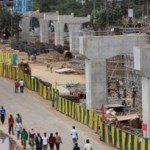


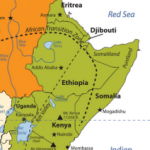



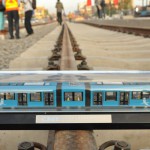

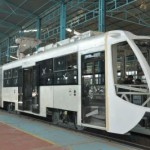
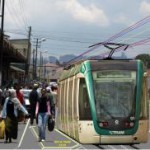











Join Conversations